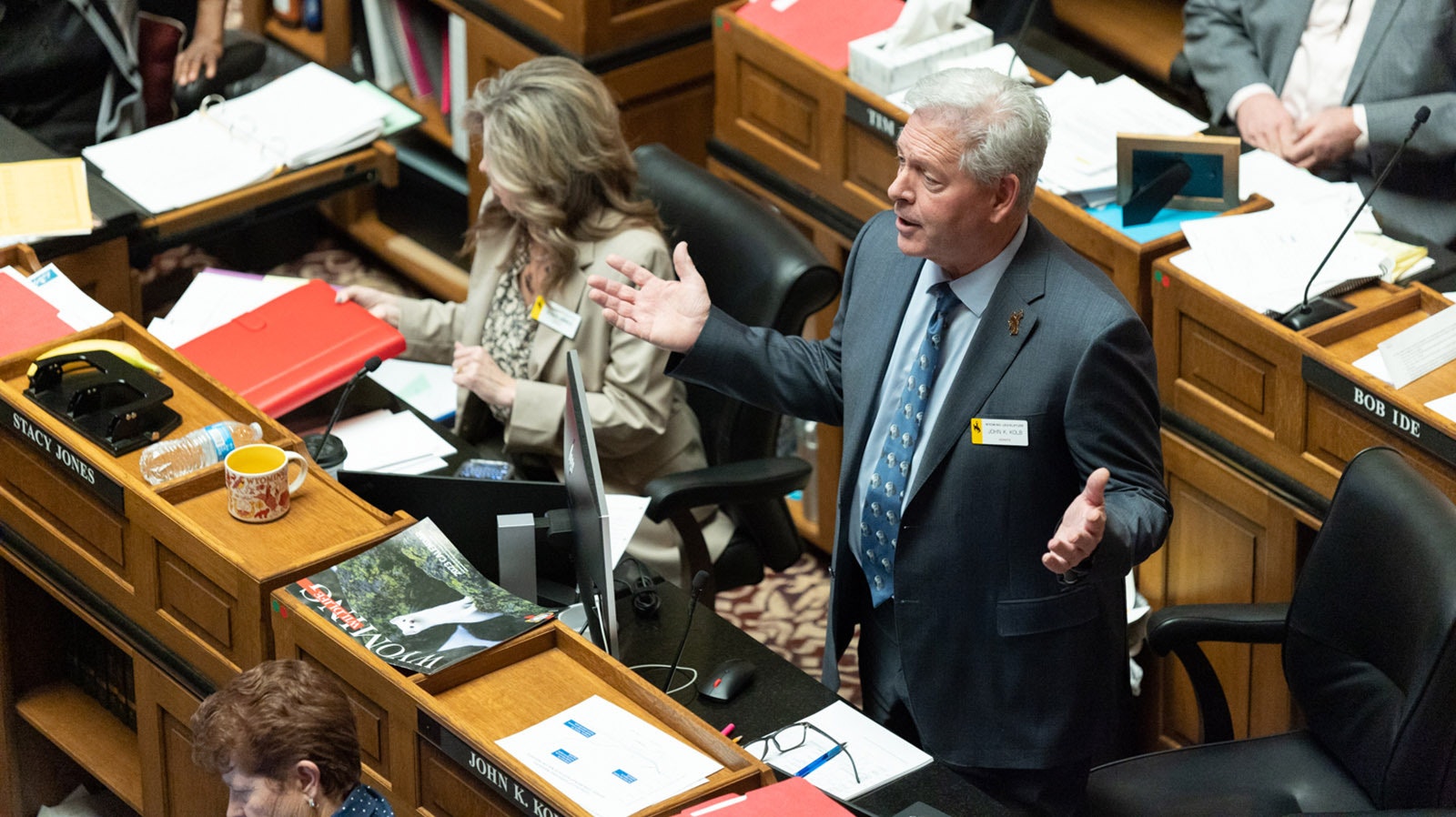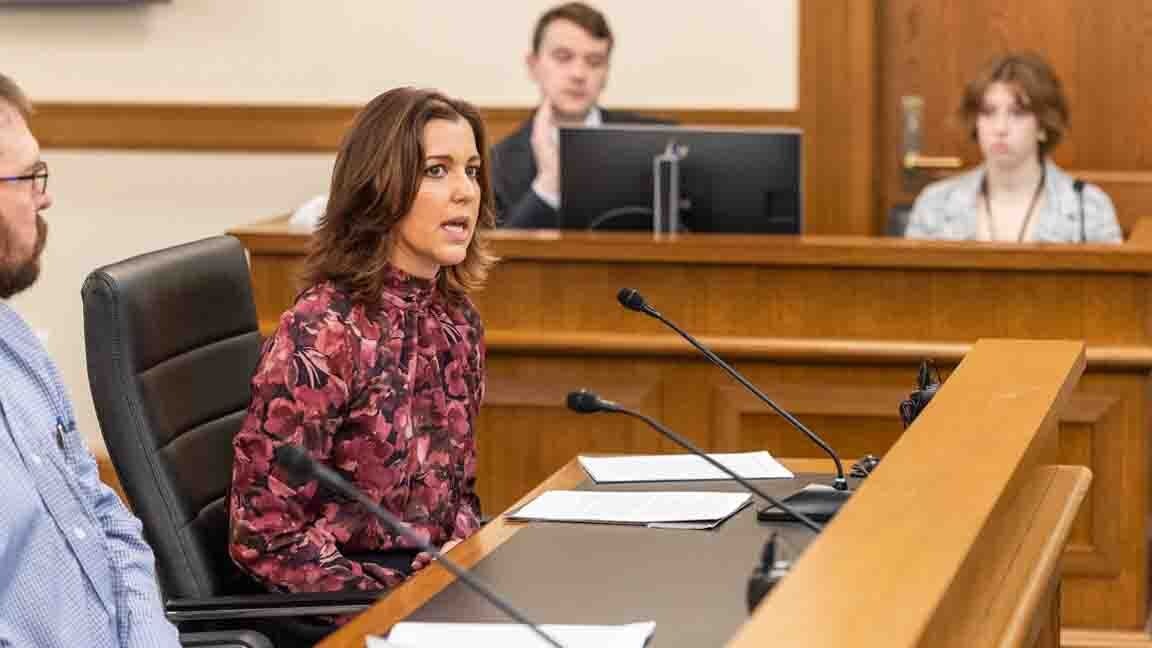Wyoming will spend another $550 million over what was originally budgeted spurred by a sprawling spending packed that includes more money for education and the state Department of Health.
State lawmakers also earmarked another $950 million be put into savings.
“In general, we put a lot of money away,” said Rep. David Northrup, R-Powell, during a second day of budget debate on the floor of the Wyoming House of Representatives on Friday. “We weren’t, as they said, ‘spending like drunken fools.’”
The final supplement to the 2022 biennium budget passed on its third reading with a 37-24 vote. Spending grew $32 million from the second reading Wednesday night and $89 million from what Gov. Mark Gordon requested before the current legislative session began.
Savings also increased by $750 million from Wednesday’s proposal.
‘Good Fiscal Policy’
Flush with more than $730 million in revenue above what was budgeted for, dealing with that surplus was a challenge, but in the end was handled well, said House Speaker Pro Tempore Clark Stith, R-Rock Springs.
“The supplemental budget bill is good fiscal policy that sets the stage for a more prosperous future while protecting the state against Wyoming’s rocky revenue streams,” Stith said. “It is important to note that the work today is a measure that addresses the realities and challenges Wyoming people are facing.
“Although it would be easier to bury our heads in the sand, this bill represents a courageous effort to face reality head-on.”

Spend And Save
A major debate was how the state should spend its nearly $2 billion budget surplus, which contained $738.8 million in increased revenue for the 2023-24 biennium.
“Everyone wants to come out and get a piece of the piece,” said Rep. Scott Smith, R-Lingle.
In a Friday afternoon press release, Rep. Lloyd Larsen, R-Riverton, said he plans to support amendments that offer critical dental health services to 40,000 children and senior citizens in the state and $5 million to fully fund the state’s property tax refund program.
“The people of Wyoming are a priority with this budget,” he said. “We are restoring cuts and enhancing mental health, social services, education and job training.”
Scott said he would prefer more money go to property tax relief through a rebate program or completely into the Permanent Mineral Trust Fund.
He said if the state was ever able to rely 100% on this fund, also known as the state’s rainy day fund, it could then possibly eliminate all property taxes.
“I’m just disappointed with the entire budget,” he said. “This is a supplemental budget where the state was fully funded for two years.”
Education
Northrup, a major proponent of funding education in Wyoming, was pleased with the amount of money devoted to this sector.
The House matched the governor’s proposal for education funding at $386 million, and added $89 million in items on top of Gordon’s proposal outside K-12 funding.
The K-12 stipend doesn’t include $120 million in capital construction projects for schools, which also is in addition to the other education money.
The biggest spending item Friday night was $27 million more to match the K-12 inflation adjustment made in Gordon’s $70 million proposal, and a $10 million amendment to create a physician’s assistant program at the University of Wyoming.
A total of $5 million also was taken away for affordable housing, leaving $15 million for those efforts.
Controversial Amendments
One of the more controversial amendments made was by Rep. Jeanette Ward, R-Casper, who proposed defunding the gender studies program at UW.
The amendment failed on a voice vote.
Rep. Rachel Rodriguez-Williams, R-Cody, also brought an amendment that would have denied school districts spending money for teacher salaries for staff to receive training from the Wyoming Education Association.
The WEA has been criticized by many conservatives in the state for promoting “woke” ideology.
This amendment also failed.
“Some of the amendments are based on what’s happening nationally,” Northrup said. “Yes, it affects Wyoming, but it’s not Wyoming politics.”
What’s Next
Of the 46 amendments proposed Friday, 16 passed, 14 failed, and 16 were withdrawn.
The House will next meet with the Senate to iron out a final supplemental budget.
The Senate passed its version earlier Friday on an 18-12 vote.
The Senate also wants to make a significant deposit into the rainy day fund, proposing $1 billion for permanent savings.





